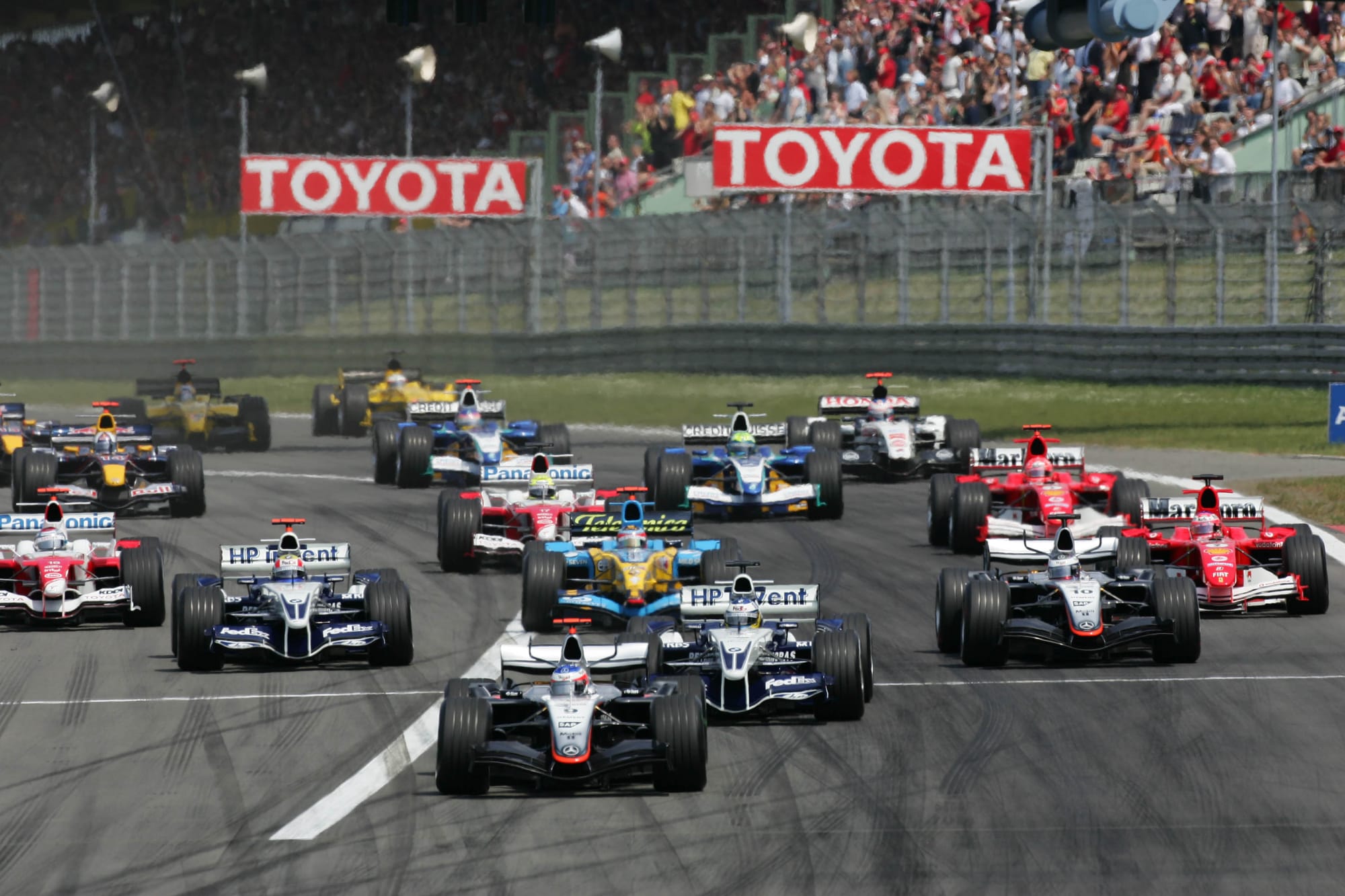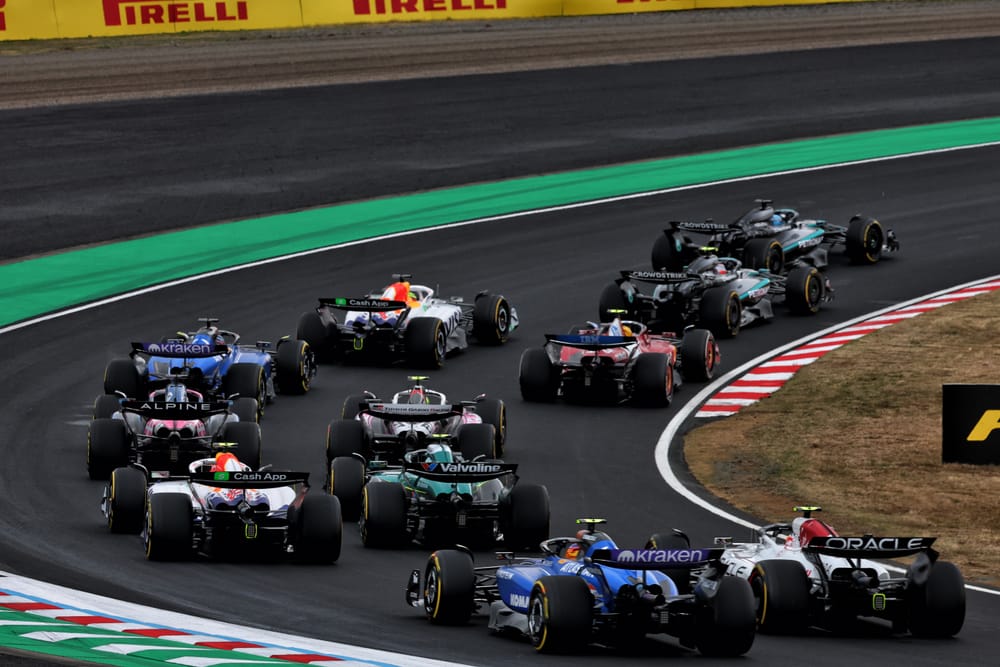Formula 1 looks set to adopt a series of rules concessions for 2026 aimed at alleviating concerns about the new engine regulations, The Race has learned, with a V10 switch now off the table until at least 2029.
During an engine rules summit meeting in Bahrain on Friday morning hosted by FIA president Mohammed Ben Sulayem, lengthy discussions took place with F1 manufacturers about a future roadmap amid growing intrigue about a potential move towards V10s run on fully sustainable fuels.
It included feedback from paddock representatives as well Audi CEO Gernot Doellner, Ford's global director of performance Mark Rushbrook, and Mercedes chairman Ole Kallenius, who joined via video call.
The meeting, which included all the manufacturers currently involved in F1 plus Cadillac, was aimed at gathering opinions on where carmakers, the FIA and FOM felt things should go over the next few years.
While the meeting was never intended to deliver a decisive vote on what direction the rules should head in, multiple sources have indicated that progress was made in putting everyone the same page - and especially addressing worries there are about the 2026 regulations.
This has focused on two key areas: the risk of the grid being blown apart and there being no opportunity for those underperforming to catch up, plus concerns about the state of the racing if grands prix turn into economy drives.
With all parties agreeing that scrapping the 2026 rules was not a realistic option, progress was made on suggesting a series of tweaks to the regulations aimed at getting rid of some potential hurdles that could be faced from next year.
While the specific details of this are far from finalised, and these will now progress through the regular channels, it is understood these include moves to try to cut costs, a better ability for those on the back foot to be able to make improvements, as well as potential tweaks to the sporting regulations aimed at improving the racing.
V10 discussions

With a clear commitment from the manufacturers to the success of the new turbo hybrid rules, it is understood that there was broad agreement that any idea of a change of engine concept - towards a V10 or V8 - should be put on the backburner for now.
It is understood that manufacturers are open to considering a different direction longer term, but this will not be before 2029 - with some actually preferring that F1 sees through its original timeline of running to 2031.
While there was no agreement on whether a future alternative engine should be a V8 or V10, and naturally aspirated or turbo-charged, it did become clear in the meeting that a hyrid element to the regulations was critical for keeping manufacturers interested.
This would mean some form of KERS system, but perhaps not delivering as much power as the planned 50/50 split of ICE/electric power that is coming with the 2026 rules.
What did emerge as something of critical importance was ensuring that future engine regulations were aimed at keeping costs in check, with the expensive power units coming for 2026 having been cited as one of the reasons why the FIA wanted to bring in the V10 potentially as early as 2028.
Speaking at the Chinese Grand Prix last month about the reasons for the push to consider an alternative engine, the FIA's single seater director Nikolas Tombazis said that concerns about the costs of the new turbo hybrids were at the forefront.
"The progress with sustainable fuels has led to the view that maybe the engines could be simpler," he explained.
"The world economy does lead to views that maybe we should try to cut costs a bit more, and the current power units are way too expensive.
"That is a fact. We would like them to be cheaper, and that's why the president made the comments about the V10 engine in '28 and so on."
One of the issues that came up in the Bahrain meeting, however, was that any move to introduce a V10 or V8 earlier than 2031 would lead to an increase in costs for manufacturers - which could require some form of compensation if there was the need for a parallel development programme.
Another topic discussed was whether the next engine rules cycle, whether it comes before 2031 or not, should be shorter than the five years that they have run to previously.



